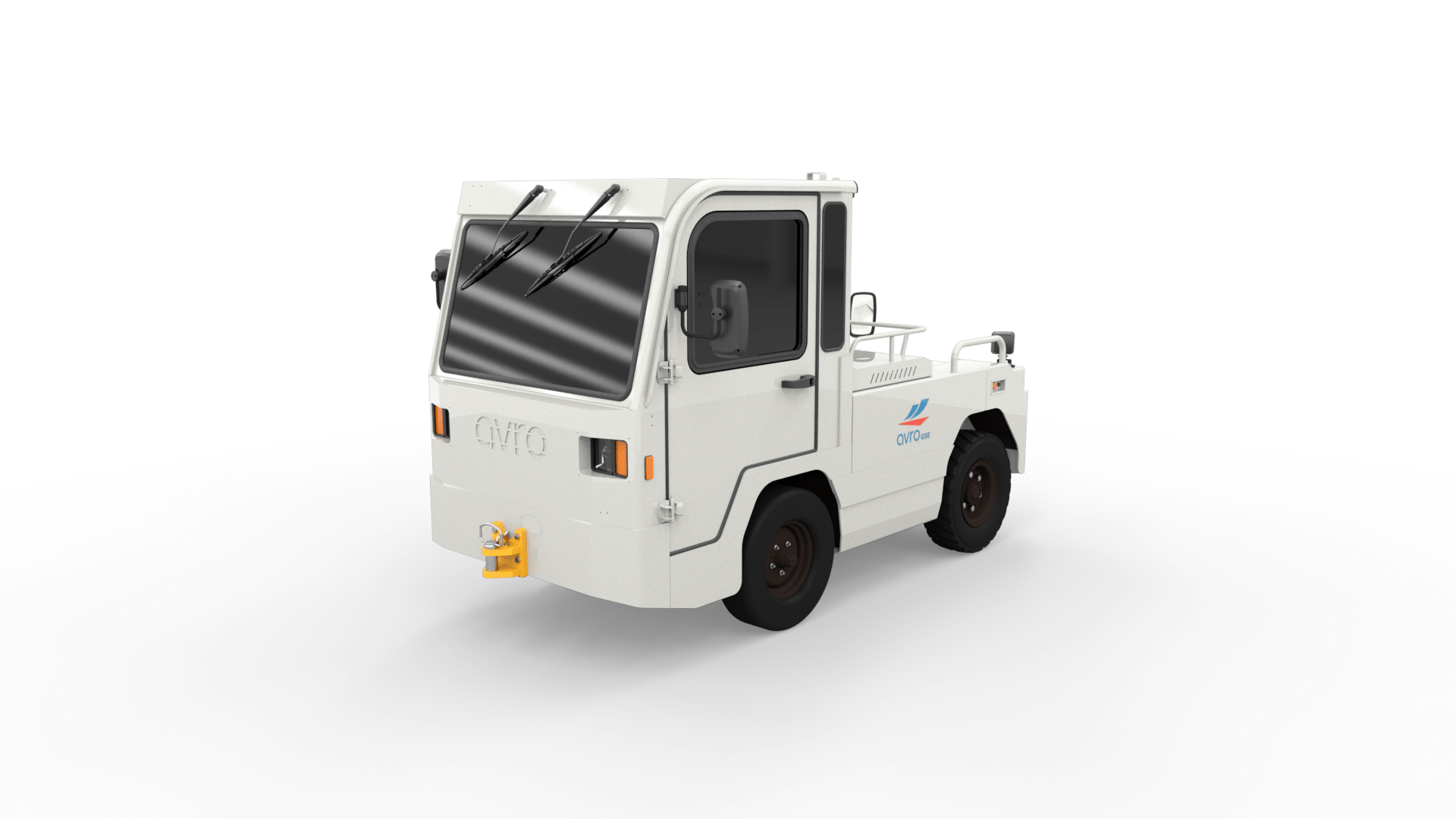Lithium battery-powered ground support equipment has garnered much attention in recent years. As GSE operations adapt to the market and plan for a competitive future, operating with maximum efficiency has become paramount.
As a solution, lithium battery-powered GSE has risen in popularity in the last decade.
So, what’s the hype? Read on to find out.
How it works
According the U.S. Department of Energy, a Lithium battery is comprised of an anode, cathode, separator, electrolyte, and two current collectors (one positive and one negative). The anode and cathode is where the lithium is stored.
The electrolyte carries positively charged lithium ions from the anode to the cathode back and forth through the separator. The movement of the lithium ions creates free electrons in the anode which creates a charge at the positive current collector. The electrical current then flows from the current collector through the ground support equipment’s engine to the negative current collector. The separator blocks the flow of electrons inside the battery.
While the battery is discharging and providing an electric current, the anode releases lithium ions to the cathode, generating a flow of electrons from one side to the other. When plugging in the battery to charge, the opposite happens: Lithium ions are released by the cathode and received by the anode.
Being that lithium is the lightest of all metals, it provides the largest amount of energy for its weight.
Cost-savings
It’s no secret that opting for electric-powered GSE can save ground support companies thousands of dollars a year in cost-savings.
These cost-savings are not just passed on through fuel-savings, either. Lithium-powered batteries eliminate the typical maintenance associated with fuel-powered ground support equipment, including oil changes and filters.
Additionally, strong ground support equipment providers such as Avro GSE provide pre-managed maintenance care plans for lithium battery-powered ground support equipment through Avro Care, providing you with additional cost-savings.
Lower C02 emissions
One of the main reasons that lithium battery-powered GSE has been applauded in recent years is for its lowered C02 emissions in comparison to fuel-powered GSE.
In addition to lowering C02 atmosphere emissions through its lack of fuel use, lithium battery-powered GSE improves air quality for ground support staff – especially in tight spaces such as bag rooms. This contributes to overall wellbeing of ground support staff.
With environmental regulations on equipment C02 emissions tightening over recent years, many ground support companies have looked to a greener fleet as a solution – specifically, lithium battery-powered GSE.
As of January, 2019, Canada will no longer allow the importation of any equipment with a Tier 3 engine in an effort to improve air quality. This makes a lithium battery-powered fleet all the more attractive, especially for Canadian customers in particular.
Performs well in cold weather climates
Lithium-battery powered ground support equipment has an advantage over lead-acid powered GSE in cold weather climates found in northern countries.
This is because lead-acid batteries require top offs with distilled water for periodic maintenance. In northern climates with freezing temperatures, this is not a viable solution.
Equipment with a lead-acid battery contains a liquid electrolyte, which is a mixture of sulfuric acid and water. A minimum level of distilled water is required in order for the lead-acid battery to function, requiring “top offs” when levels become low. This can become cumbersome in busy ground handling operations.
Lithium-battery powered GSE not only performs better in cold weather climates, but requires less cumbersome maintenance.
Greater energy store than lead-acid batteries
In addition to the increased energy storage, lithium powered-batteries can store more energy in a more compact volume.
Lithium powered-batteries also have a greater usable capacity than lead-acid batteries. It’s typically suggested to use no more than 50% of the rated capacity of a lead-acid battery. This is because if you drain the battery life more than 50%, the lifetime usage will be cut short. Lead-acid batteries need to be replaced more often than lithium powered-batteries do.
When charging, a lead-acid battery charges the last 20% of the battery much slower than a lithium battery. If you require a quick charge time in your ground support fleet, this can be problematic. Lithium acid batteries can be quickly charged, which is helpful for bustling ground handling operations requiring a growing amount of turnaround times.
Lithium powered-batteries also have an advantage because they can be charged indoors since they do not require fuel or need special consideration for lead-acid battery spill-over like lead-acid powered equipment does.
The cost-savings, easy maintenance, and durability of lithium battery-powered ground support equipment make it a prime choice when it comes to electric ground support equipment.
Avro GSE is part of the Saskarc family of companies.
We keep your GSE equipment and overall aircraft operations working efficiently and help our customers avoid downtime caused by old, outdated or malfunctioning GSE. We help customers modernize their fleet with advanced technology to maximize reliability, operational efficiency, and overall safety.
We provide GSE equipment service that is proactive, cost effective and designed for rapid problem response and resolution. We take care of the ground so your business stays in the air!


